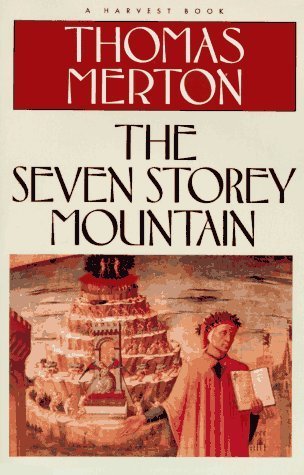
Book number 30 for 2024, 3.5/5 stars.
I chose this book as part of my Lenten season reading for this year. I had heard about this book for many years and finally got around to reading it. It seems to be a very popular and famous book.
Thomas Merton was a Trappist Monk, also known as the Cistercian Order, if I understand correctly. But he spent the first part of his life as practically an atheist. This is his story, but, to me, it is more of a memoir than an autobiography. That’s just my opinion, though.
The star rating that I would eventually give this book changed multiple times, along the way. Early on, I found it very interesting. However, there was a segment of the book nearly did me in. I got really bogged down in that section. His time at Columbia University really got philosophical. But then came the telling of his baptism story, and that was uplifting and fascinating. From that point on, the book held my interest more.
He went through a lot, during all of these phases. He had decided that he wanted to be a priest, and had even got accepted at a monastery. But then he was riddled with guilt over his past sins and felt that he needed to “come clean” with the Father, after which he was eliminated from the possibility of being a priest, at least in the Franciscan Order, which was where he thought he needed to be. In time, though, he eventually wound up in the Cistercian Order, as a Trappist Monk. And this was a contemplative order, as well.
There are many flashes of inspiration in the book, but there are places that really made me scratch my head, as well. And I suppose this is common in any book or writing of one who might be considered a “mystic.” There are a few quotes that I found worth mentioning.
“The devil is no fool. He can get people feeling about heaven the way they ought to feel about hell. He can make them fear the means of grace the way they do not fear sin, and he does so, not by light but by obscurity, not by realities but by shadows; not by clarity and substance, but by dreams and the creatures of psychosis. And men are so poor in intellect that a few cold chills down their spine will be enough to keep them from ever finding out the truth about anything.” (p. 26)
“The love of pleasure is destined by its very nature to defeat itself and end in frustration.” (p. 106)
“It is a kind of pride to insist that none of our prayers should ever be petitions for our own needs; for this is only another subtle way of trying to put ourselves on the same plane as God – acting as if we had no needs, as if we were not creatures, not dependent on Him and dependent, by His will, on material things, too.” (p. 247)
And one of the most beautiful, to me: “What a thing Mass becomes, in hands hardened by gruelling and sacrificial labor, in poverty and abjection and humiliation! ‘See, see,’ said those lights, those shadows in all the chapels. ‘See Who God is! Realize what this Mass is! See Christ here, on the Cross! See His wounds, see His torn hands, see how the King of Glory is crowned with thorns! Do you know what Love is? Here is Love, Here on this Cross, here is Love, suffering these nails, these thorns, that scourge loaded with lead, smashed to pieces, bleeding to death because of your sins and bleeding to death because of people that will never know Him, and never thing of Him and will never remember His Sacrifice. Learn from Him how to love God and how to love men! Learn of this Cross, this Love, how to give your life away to Him.'”
I could easily say that the book went from four stars to three, and back to four, based on which section I was reading. I finally wound up at 3.5 (I left it at 3 on Goodreads, which doesn’t allow half-star ratings). I liked it, and almost “really liked” it, but not quite. I probably won’t keep my copy and probably will never read it again . . . too much other stuff out there for that. Would I recommend it? Not automatically. But it is definitely a good way to get into the head of one who is staunchly Catholic and could be useful in some understanding of that. It would almost be better to find someone who had summarized some of the more inspirational parts of the story.
TTFN, y’all!






